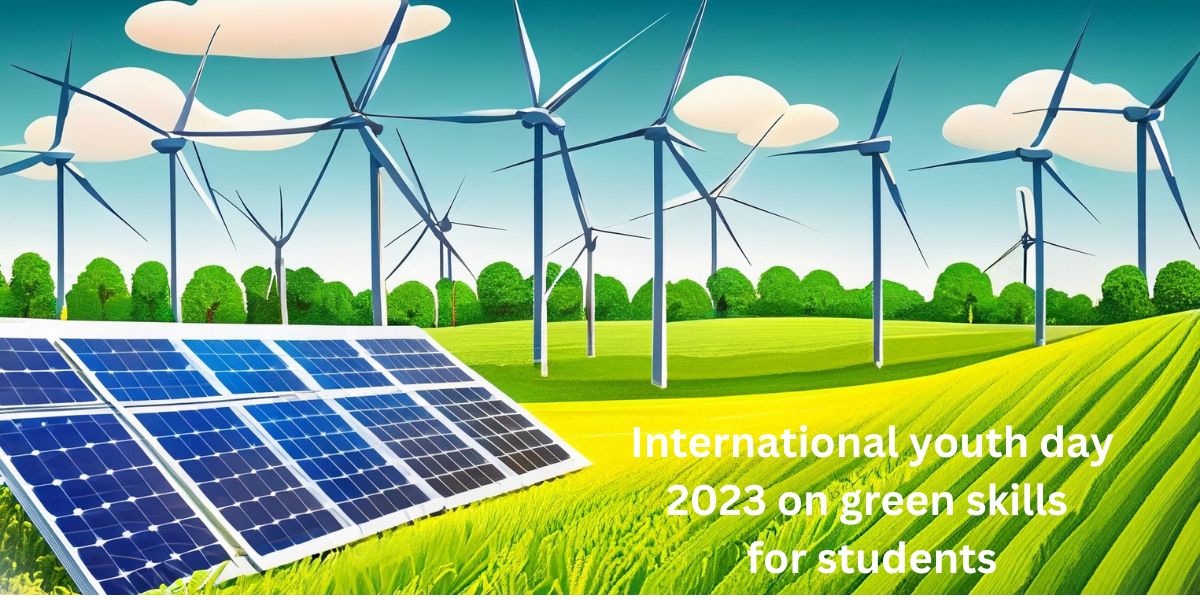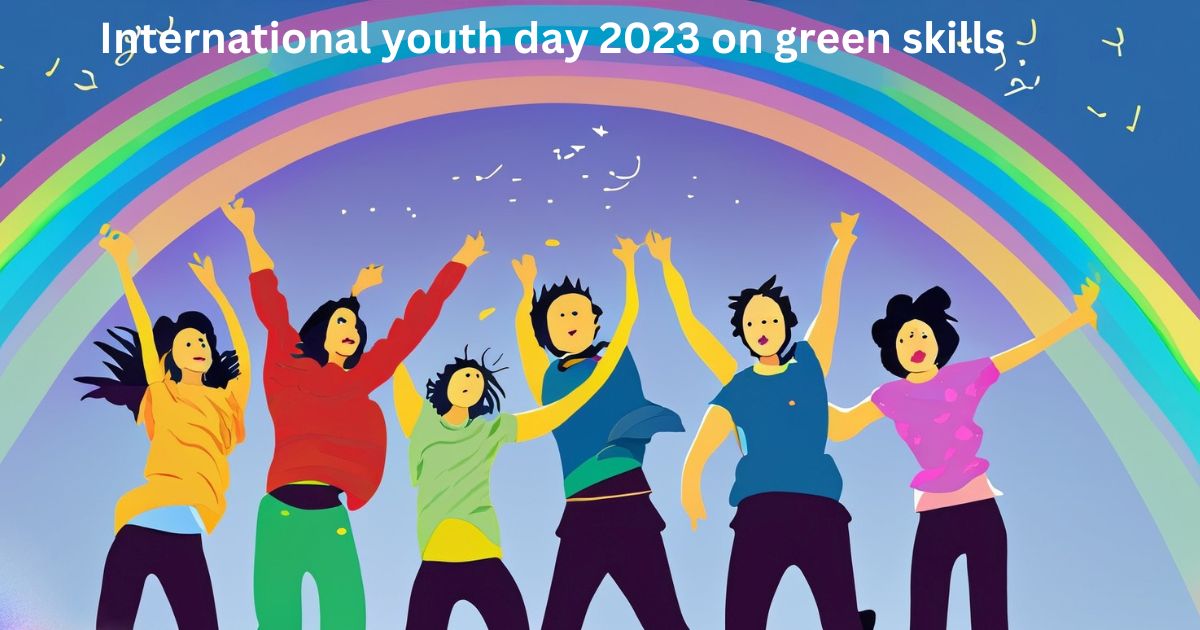
United Nations’ Vision: 4 Million Jobs for Youth by 2030. The Youth Need to Stay Healthy – Equipped with Green Skills
The journey toward a sustainable future demands concerted efforts to nurture and develop green skills. A multi-pronged approach is essential, involving education, policy development, industry collaboration, and individual commitment.
August 12 marks International Youth Day. Let us celebrate this occasion by providing support and inspiration, leading young people to foster a more dynamic and inclusive global community. In this article we examines in detail about
International youth day 2023 on green skills for students
International Youth Day celebrated worldwide, serves as a reminder that the youth are not just leaders of tomorrow, but crucial contributors today. Each year, this day focuses on a specific theme that addresses pertinent global challenges and opportunities. From climate action to social justice, education to mental health, these topics encourage youth to engage, voice their opinions, and drive change.
International youth day 2023

The International Youth day, often astonishes observers due to its multifaceted nature of significance. This occasion poses questions about the empowerment of youth that impacts global development. The festival focuses on social, economic, and political aspects, requiring strategies to effectively address the challenges faced by youth worldwide.
Creativity and Leadership: International Youth Day illuminates the creativity and leadership among young people, enabling them to handle complex challenges and drive progress.
Empowering Youth Voices: International Youth Day offers young individuals the opportunity to express their thoughts, concerns, goals, and ideas. It prepares them to tackle major global challenges, promoting social justice, education, and mental health transformation.
Interconnection and Cooperation: This day emphasizes the importance of intergenerational connectivity and cooperation, which construct bridges fostering mutual development and understanding, promoting cooperation.
International Youth Day helps us remember that the youth possess the key to the future. We contribute to creating a world that values diversity, creativity, and social development, by listening to their achievements, perspectives, and offering them opportunities, encouraging youth to actively participate in their communities, express their ideas, and contribute to decision-making process.
Green Skills
Educational institutions play a crucial role in shaping the next generation of green professionals. The curriculum should be designed to integrate principles of sustainability across all subjects, fostering a comprehensive understanding of environmental challenges. Collaborative efforts between academia, real-world projects, and industry experts can bridge the gap between theoretical concepts and practical applications.
Governments and policy-makers hold a key role in creating an enabling environment for the development of green skills. Incentives, subsidies, and regulations can encourage businesses to adopt sustainable practices and invest in training their workforce. Policies that promote research and innovation in sustainable technologies can further enhance the development of green skills.
Industry collaboration is essential to ensure that green skills align with practical needs.
Green Skill Jobs
Various sectors have demand for the development and integration of green skills, particularly in solar technology, wind energy, and energy-efficient systems. The green building movement, which emphasizes energy efficiency and sustainable design, has created demand for skilled architects and engineers in environmentally-friendly construction practices. Agricultural methods are evolving with the integration of organic farming techniques and permaculture principles.
On an individual level, embracing a mindset of lifelong learning is crucial. The need for continuous upskilling and reskilling remains essential. The development of comprehensive environmental, social, and economic interrelationships calls for the creation of holistic training and educational programs in green skills.
Traditional educational structures often struggle to keep pace with rapid technological advancements and practices. Balancing theoretical principles with practical experience and fostering creative problem-solving skills is important in addressing multifaceted challenges.
Moreover, the diversity and complexity of required green skills vary across different sectors. While some roles may require expertise in renewable energy systems, others might demand proficiency in circular economy principles, waste reduction, or sustainable urban planning. Addressing this diversity requires training and development tailored to the specific needs of each sector. Stability isn’t limited by geographical boundaries and solutions should be contextually relevant and adaptable across different domains.
This necessitates a delicate balance between universal principles and local implementation, fostering an environment where the challenge of promoting green skills is magnified beyond borders. The surge in demand for green skills is, in part, a response to the challenges posed by climate change and environmental degradation.
Green skills serve as a catalyst for continuous growth and adaptation. The complex nature of sustainable practices necessitates ongoing learning, research, and collaboration. As individuals and organizations grapple with the intricate web of sustainability, they are propelled toward deeper exploration, leading to the emergence of new technologies, methodologies, and perspectives.
Conclusion
The dramatic increase in pursuit of environmentally friendly methods is evidence of people’s rising awareness of how urgently things need to change. However, the intricacy of sustainable practices poses a challenge that necessitates creative thinking, teamwork, and commitment. The journey toward a sustainable future is worthwhile, even though the road ahead may be paved with obstacles. As people, groups, and societies demonstrate their capacity to transform sectors of the economy, generate job growth, and restore the fragile ecosystem of our world. Green skills are the key to a future in which sustainability is not simply a goal but a way of life, as they may help close the gap between aspirations and action.
What is Green Skills?
Green Skills are “knowledge, competencies, values, and perspectives necessary for living, developing, and contributing effectively in a life, Sustainable and Resource-Skilled Society.